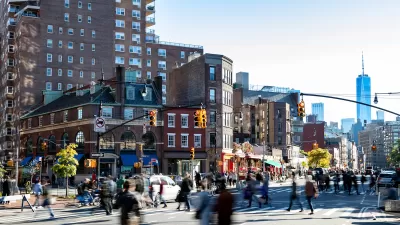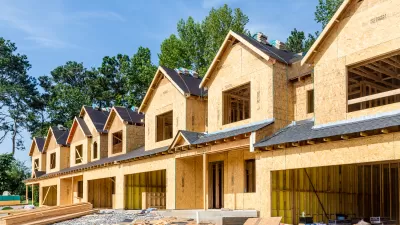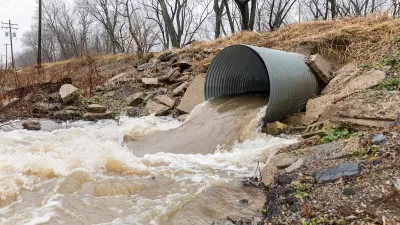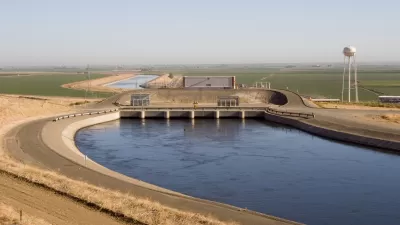Creating adaptive, sustainable communities may require rethinking some planning basics.

Stephanie Sklar, CEO of the Sonoran Institute, and George McCarthy, CEO of the Lincoln Institute of Land Policy, call for a paradigm shift in the planning field to better prepare for the impacts of climate change, grounding their argument in the context of Colorado’s state water goals. By 2025, Colorado aims for water conservation to be integrated land-use planning in communities accounting for 75 percent of the state.
"Local planners are at the forefront in addressing Colorado's water future," Sklar and McCarthy write, because the state’s water plan "recognizes the impact that land use has on water resources."
But to fulfill that goal—and build sustainable communities nationwide—planning as usual may not cut it.
The impacts of climate change could unfold into "a range of unpredictable futures," from drought to global economic loss. To prepare, planners may need to embrace the seeming antithesis of planning: uncertainty. "'What if…' should be a planner's mantra going forward," the authors suggest.
To illustrate how that philosophical shift could change the practice:
Water and wastewater infrastructure investments typically extend over a 30-year lifespan but often reflect key assumptions made at a project's initial conception. Will those assumptions hold over three decades, particularly as they relate to infrastructure payment and usage, in a more uncertain future?
Moreover, though Colorado's water plan is centered on community planning, municipalities need to adopt more cross-jurisdictional collaboration—particularly within a shared watershed.
"Planning for our future must occur at the scale of the problems we are trying to solve," the writers urge.
FULL STORY: Viewpoint: New approaches needed to meet Colorado's future water demands

Pennsylvania Mall Conversion Bill Passes House
If passed, the bill would promote the adaptive reuse of defunct commercial buildings.

Planning for Accessibility: Proximity is More Important than Mobility
Accessibility-based planning minimizes the distance that people must travel to reach desired services and activities. Measured this way, increased density can provide more total benefits than increased speeds.

Fair Housing Cannot Take a Back Seat to ‘Build, Baby, Build’
If we overlook fair housing principles in the plan to build US housing back better, we risk ending up right back where we started.

LA Metro Board Approves New 710 Freeway Plan
The newest plan for the 710 corridor claims it will not displace any residents.

Austin’s Proposed EV Charging Rules Regulate Station Locations, Size
City planners say the new rules would ensure an efficient distribution of charging infrastructure across the city and prevent an overconcentration in residential areas.

Making California State Parks More Climate-Resilient
A recently released report offers recommendations for keeping state parks healthy and robust, including acquiring additional land for conservation and recreation.
City of Costa Mesa
Licking County
Barrett Planning Group LLC
HUD's Office of Policy Development and Research
Mpact Transit + Community
HUD's Office of Policy Development and Research
Tufts University, Department of Urban and Environmental Policy & Planning
City of Universal City TX
ULI Northwest Arkansas
Urban Design for Planners 1: Software Tools
This six-course series explores essential urban design concepts using open source software and equips planners with the tools they need to participate fully in the urban design process.
Planning for Universal Design
Learn the tools for implementing Universal Design in planning regulations.


























